Discover financial empowerment resources
Discover financial empowerment resources
The Financial Services Regulatory Authority of Ontario (FSRA) is responsible for protecting the rights of consumers in Ontario by promoting high standards of business conduct and transparency within the financial services they regulate. Financial services professionals are not required to use...
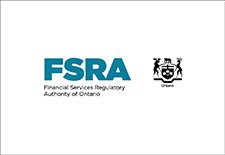
Financial Services Regulatory Authority is responsible for registering all federally incorporated loan and trust companies that do business in Ontario. They enforce the Loan and Trust Corporations Act that govern loan and trust companies. Use this website to learn more about: How to find a...

Under the Mortgage Brokerages, Lenders and Administrators Act, 2006 (MBLAA) all individuals and businesses in Ontario who carry out regulated mortgage brokering activities must be licensed with the Financial Services Regulatory Authority unless otherwise exempted by the Act. As regulator, their...

Financial Services Regulatory Authority’s role, as a regulator, is to ensure that insurance companies’ proposed rates are fair and not excessive. This website will help you learn about: What to do after an accident How to save on auto insurance Filing a complaint Getting an auto...

This guide, prepared by FAIR Canada, will help consumers who have complaints against their bank or investment firm and want to be financially compensated for their losses. This guide provides and overview of external complaint-handling systems that may be available when seeking compensation. It is...
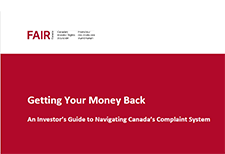
CIRO is the national self-regulatory organization (SRO) that oversees investment dealers, mutual fund dealers and trading activity on Canada’s debt and equity marketplaces. CIRO works to protect investors. CIRO sets and enforces rules for the business and financial conduct of Member firms and...
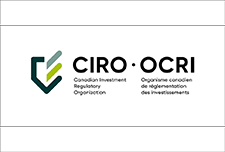
If you have suffered a financial loss because your investment advisor or firm acted improperly, you may be eligible to receive financial compensation. Read this article by CIRO to learn...

While CIRO’s mandate includes setting and enforcing market integrity rules regarding trading activity on Canadian debt and equity marketplaces, they do not have jurisdiction over specific issuers of securities or their directors, officers or employees. Learn about available options if you wish...

A CIRO Member is an investment firm regulated by CIRO who must follow CIRO’s rules, including rules for handling client complaints. Clients of a CIRO Member who are not satisfied with a financial product or service have a right to make a complaint and to seek resolution of the problem. CIRO...

If you have a complaint, it is important you fully understand your rights, so that you don’t feel taken advantage of during the process. After reading the guide, you will: ● Know how and who to contact when you first make a complaint. ● Understand your basic rights during the process,...

A comprehensive set of articles are available on the Ontario Securities Commission website on how to identify and report fraud as well as what to do if you have been...
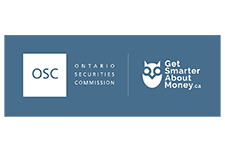
Financial fraud can be stressful and time-consuming experience. It can affect you both financially and emotionally. If you are defrauded, or suspect that you may have been defrauded, follow the steps outlined in this...

Whether you’re a first-time investor, thinking of saving for your education, or planning for your retirement, FAIR Canada's investing basics may help you on your investing...
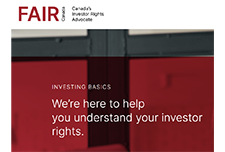
This report summarizes the information gathered by the Consumer Financial Protection Bureau (CFPB) regarding certain consumer complaints transmitted by the CFPB to the three largest nationwide consumer reporting agencies - Equifax, Experian and...

Canada’s external complaint handing structures and processes play a critical role in levelling the playing field for consumers and financial service providers, helping to offset the inevitable imbalance of power between large financial institutions and individual consumers. Prosper Canada...
This report explores the financial services complaint experiences of Canadians at various income levels who used the Ombudsman for Banking Services and Investments (OBSI)’s service. The national, not-for-profit organization collected demographic and case data for almost 1,000 closed cases...
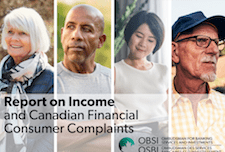
The mandate of the Taxpayers’ Ombudsman is to assist, advise, and inform the Minister about any matter relating to services provided by the CRA. The Taxpayers’ Ombudsman fulfills this mandate by raising awareness, upholding taxpayer service rights, and facilitating the...

Operating at arm’s length from the Canada Revenue Agency, the Office of the Taxpayers' Ombudsman (OTO) works to enhance the Canada Revenue Agency's (CRA) accountability in its service to, and treatment of, taxpayers through independent and impartial reviews of service-related complaints and...
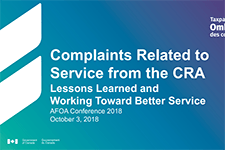
Canadian investors need more and better information to protect themselves both when they act on their own and when they retain lawyers. This handbook is intended to help Canadian investors better understand the choices they face when making a complaint and the impact of those choices. It can also...
To give Canadians a better understanding of the impact fraud has on the marketplace, Fraud Facts 2017 provides a snapshot of the different types of scams that are currently affecting Canadians and what you can do to fight back. An informed consumer is a smart consumer and that is exactly what...
The CFPB has undertaken a broad array of education initiatives this year, as well as continued or expanded upon prior initiatives. These initiatives are described in more detail in various sections of this report. The CFPB’s financial education research is focused on identifying the knowledge,...
All banks, and trust, loan and insurance companies and retail associations that are federally regulated (or that are incorporated at the federal level) must have a complaint-handling process in place for individuals and small businesses. This process details how a customer may make a complaint, and...
Credit cards can be very convenient, but it’s important to keep in mind that when you apply for a credit card, you are entering into a contract. Like any contract, it is legally binding and gives each party certain rights and responsibilities. There are rules that federally regulated financial...
The microfinance industry began with the intent to help poor clients help themselves. That’s one reason so many microfinance institutions have embraced the Smart Campaign, which strives to embed a set of client protection principles into the fabric of the microfinance sector. This synthesis...
